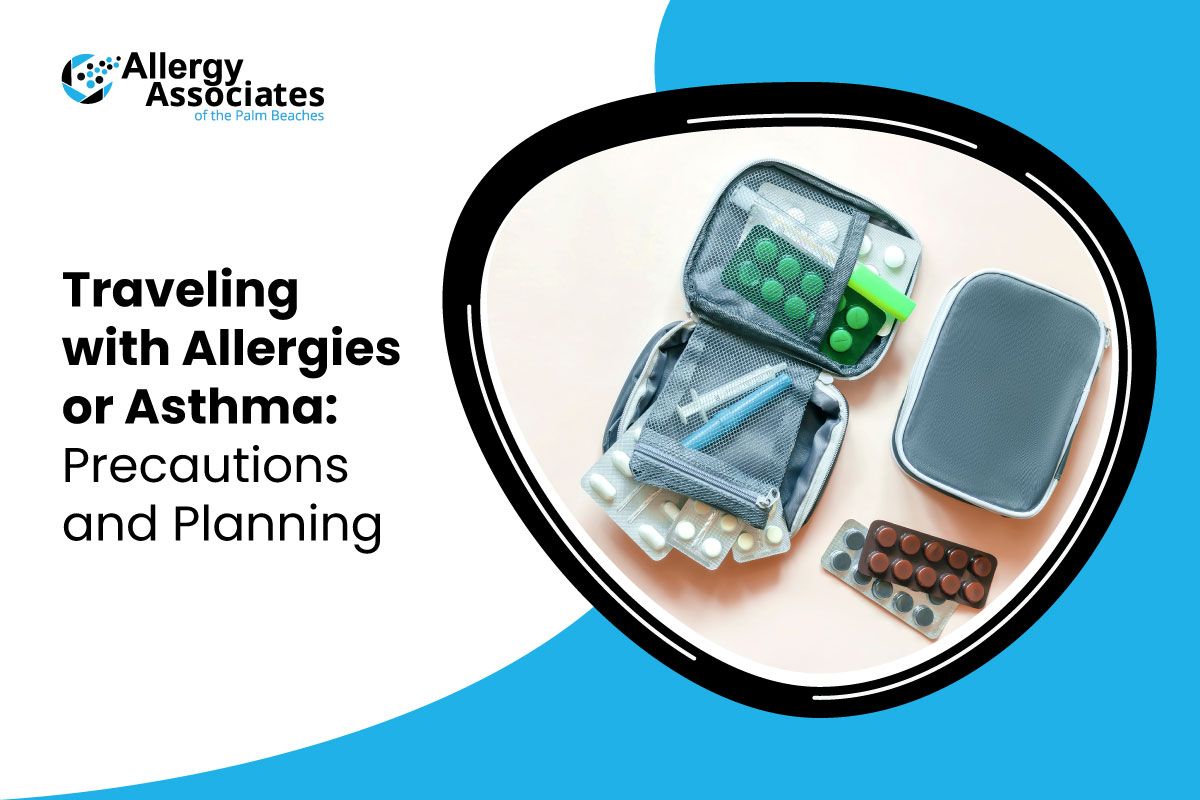
What Is the Difference Between Food Allergy and Food Intolerance?
Food allergies and intolerances represent distinct bodily reactions to certain foods. Understanding whether you have an allergy or an intolerance is crucial for effective prevention and management. As always, it’s best to consult a doctor for an accurate diagnosis, but reading up on the causes, symptoms, and treatment options could make your upcoming appointment more straightforward—and your next potluck allergy-free!
What is a Food Allergy?
Food allergies definition: A food allergy is your body's natural defense response when triggered by specific proteins found in food. When the immune system mistakes these proteins as harmful, it releases chemicals, such as histamines, that prompt allergic reactions.
The most common food allergens include:
- Peanuts
- Tree nuts
- Shellfish
- Eggs
- Milk
- Soy
- Wheat
What Is Food Intolerance?
Food intolerance definition: Food intolerance occurs when your digestive system goes haywire in response to specific components in food. It is not an immune system reaction. It happens due to the body's inability to properly digest or process particular substances.
Types of Food Intolerances
Lactose intolerance and gluten sensitivity are two prevalent types of food intolerances.
Food Allergy vs Intolerance
| Food Allergy | Food Intolerance | |
|---|---|---|
| Causes | Food allergies are primarily genetic, but environmental factors can cause them, too. Exposure to allergenic foods early in life increases the likelihood of developing an allergy. | Food intolerances occur due to enzyme deficiencies, sensitivities to food compounds, or reactions to naturally occurring substances in food. |
| Symptoms | Food allergy symptoms range from hives and stomach discomfort to severe anaphylaxis, requiring immediate medical attention. | Food intolerance symptoms often manifest as digestive issues. Signs of food sensitivity, such as bloating, diarrhea, and stomach cramps, do not involve the immune system. |
| Testing | Allergists use skin tests, blood tests, and oral food challenges to diagnose food allergies. | Doctors diagnose food intolerances through elimination diets and symptom tracking. |
| Management | The primary way to manage allergic food reactions is strictly avoiding allergenic food. In severe cases, carrying an epinephrine auto-injector is crucial. | For food intolerances, managing symptoms involves identifying trigger foods and finding suitable alternatives. Enzyme supplements are also helpful. |
| Prevention | Preventing food allergic reactions involves thorough ingredient checking, clear restaurant communication, and educating close contacts. | Managing food intolerances may require avoiding specific ingredients or finding tolerable food alternatives. |
| Cross-Reactivity | Some people with food allergies may experience cross-reactivity, where proteins in one food resemble those in another, leading to allergic reactions. | Cross-reactivity is less common in food intolerances, as they are primarily related to digestive processes rather than immune responses. |
Living With Food Allergies or Intolerances
Coping With Food Allergies: Living with a food allergy requires careful meal planning, reading labels, and communicating dietary needs to others.
Adapting to Food Intolerances: People with food intolerances may need to experiment with different diets and cooking methods to find what works best for them.
Food Allergies and Intolerances in Children
Childhood Food Allergies: Children with food allergies need vigilant supervision, education about safe foods, and a support system to navigate social situations.
Childhood Food Intolerances: Food intolerances in children may require modifications to their diet and close monitoring of their symptoms.
Common Myths About Food Allergies and Intolerances
Food Allergies Misconceptions: There are many misconceptions surrounding food allergies that mislead people and cause poor management. One example states that food allergies are not that serious. This is false. Food allergies can be life-threatening; even a tiny increment of allergen can trigger a severe anaphylaxis reaction.
Food Intolerances Misconceptions: Misunderstandings about food intolerances can also be harmful. One common myth states that food intolerance is not an actual medical condition. This is false. Food intolerance is a genuine medical condition that can cause significant discomfort and affect an individual's quality of life.
Consulting an Allergist
If you suspect a food allergy or intolerance, consult an allergist for accurate diagnosis and proper management.
Nutritional Guidance for Food Intolerances
A registered dietitian can provide insightful information on creating balanced diets that meet nutritional needs while avoiding trigger foods.
Living With Dietary Restrictions
Learning to prepare meals that consider allergies or intolerances can open up a world of delicious and safe dining experiences.
Navigating Food Choices With Intolerances
Individuals with food intolerances can still enjoy tasty and nutritious foods with careful planning and informed choices.
Psychological Effects of Food Allergies and Intolerances
Emotional Impact of Food Allergies: Managing a food allergy can be emotionally challenging, requiring support from loved ones and potentially a mental health professional.
Psychological Challenges of Food Intolerances: Food intolerances can affect one's relationship with food and body image, warranting sensitivity and understanding.
Final Thoughts
Food allergies and intolerances involve distinct diagnoses and management, so distinguishing them is crucial. While allergies involve immune responses to specific proteins, intolerances stem from digestive difficulties.
Seeking
professional help for accurate diagnosis and obtaining nutritional guidance are essential in managing these conditions. People with food allergies and intolerances can lead fulfilling lives with proper care and understanding.
FAQs About Allergy vs Sensitivity
Q: Can food allergies develop later in life?
Yes, food allergies can develop as you age, although they are more common in children.
Some disappear as you grow older, especially milk, egg, wheat, and soy allergies.
Q: Can food intolerances develop later in life?
Yes, food intolerances can develop at any age. Changes in the digestive system, enzyme deficiencies, or alterations in gut bacteria may trigger them.
Q: How are food allergies diagnosed?
Food allergies are typically diagnosed through medical history, physical examination, skin prick tests, blood tests (for specific antibodies), and oral food challenges under medical supervision.
Q: How are food intolerances diagnosed?
Food intolerances can be more challenging to diagnose. They often involve keeping a food diary, undergoing elimination diets, and reintroducing suspect foods to observe reactions.
Q: Can food allergies be cured?
Unfortunately, food allergies have no permanent cure. Management involves strict avoidance of the allergen and having an action plan in case of accidental exposure.
Q: Can food intolerances be cured?
Food intolerances may improve or resolve over time, especially those related to temporary factors like digestive issues. However, some food intolerances, like lactose intolerance, are typically lifelong.
Q: Can food allergies be life-threatening?
Severe food allergies can be life-threatening, particularly if they lead to anaphylaxis. This allergic reaction requires immediate medical attention.
Q: Can food intolerances be life-threatening?
Food intolerances are typically not life-threatening. However, in rare cases, severe reactions to specific food components (like phenylalanine in phenylketonuria) can be tricky and require medical attention.
Revitalize Your Inner Foodie and Enjoy Every Meal Without Fear!
If you're searching online for "food intolerance medication" and "allergy vs. sensitivity," you're exactly where you need to be!
Allergy Associates of the Palm Beaches is the most reliable treatment center, providing compassionate and personalized care to people with food allergies or intolerance.
Our board-certified allergists offer accurate diagnostics to provide safe and efficient treatment plans suitable to your needs. If you are a resident of the Palm Beaches area and affected by food allergies or intolerances, visit Allergy Associates today!
Book your preferred schedule today by clicking
here.
Allergy Associates of the Palm Beaches
Allergy Associates of the Palm Beaches | All Rights Reserved.










